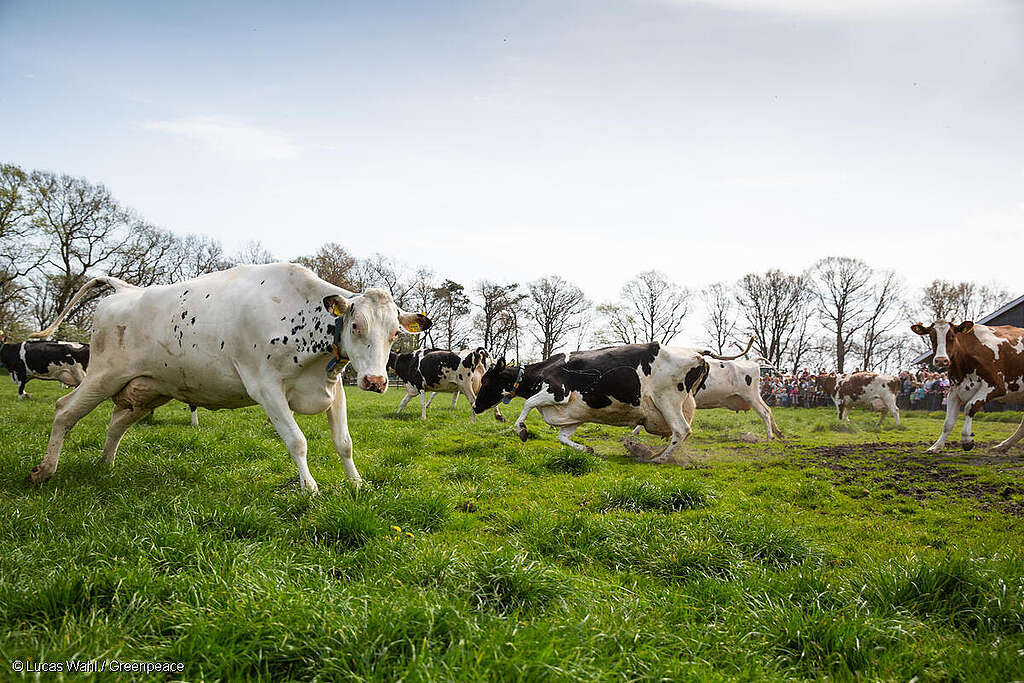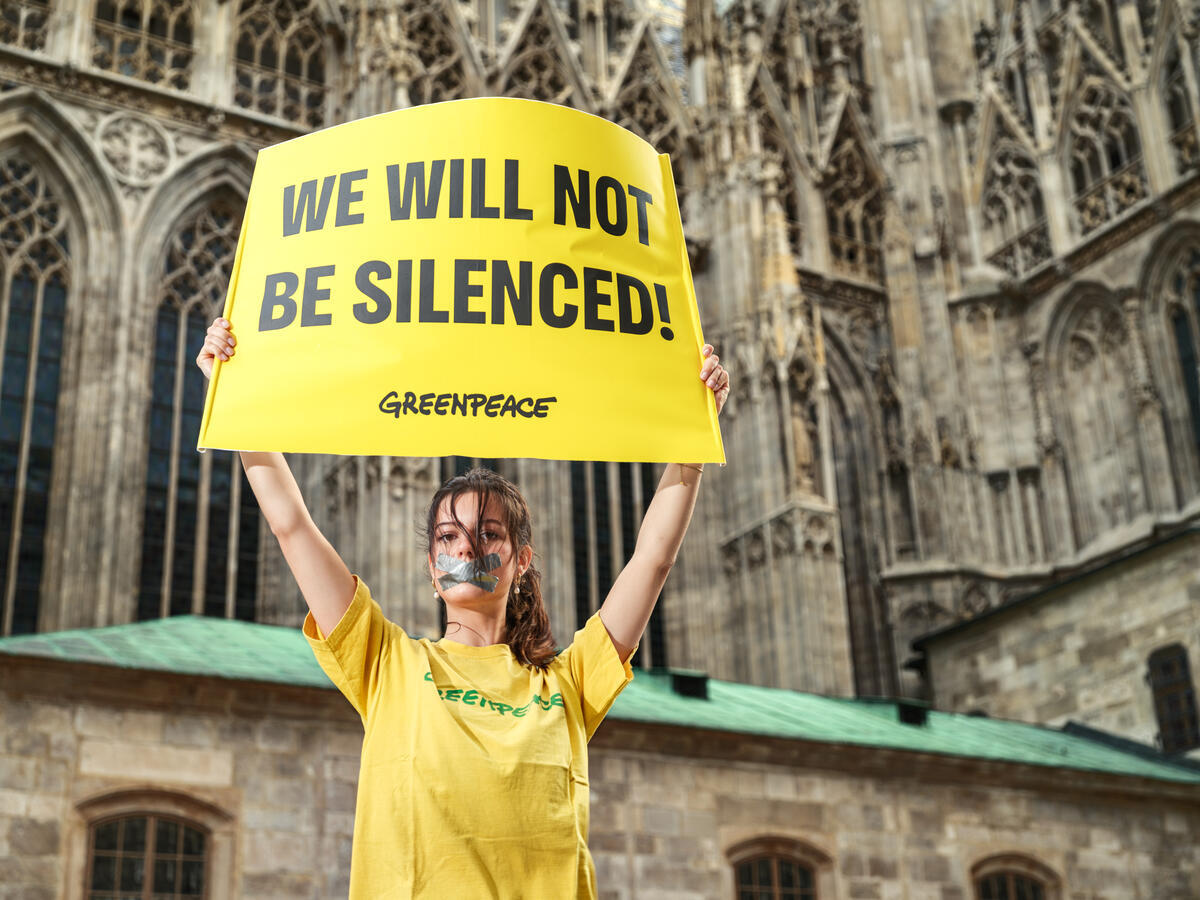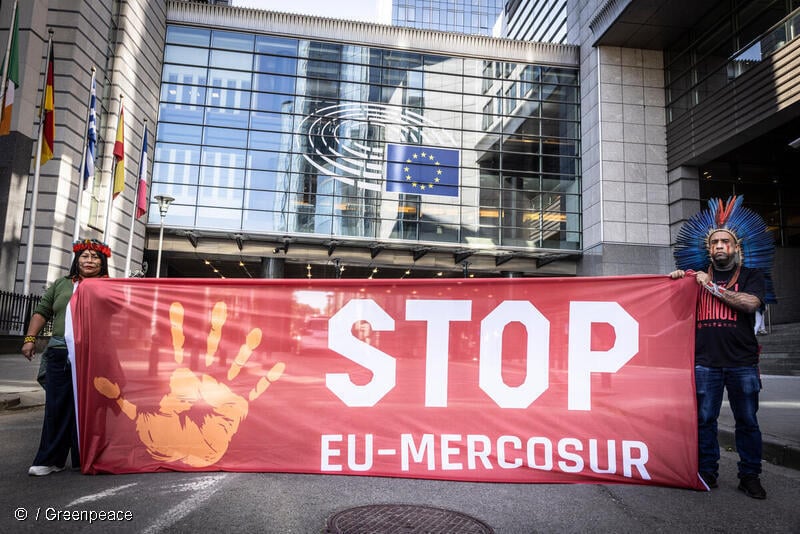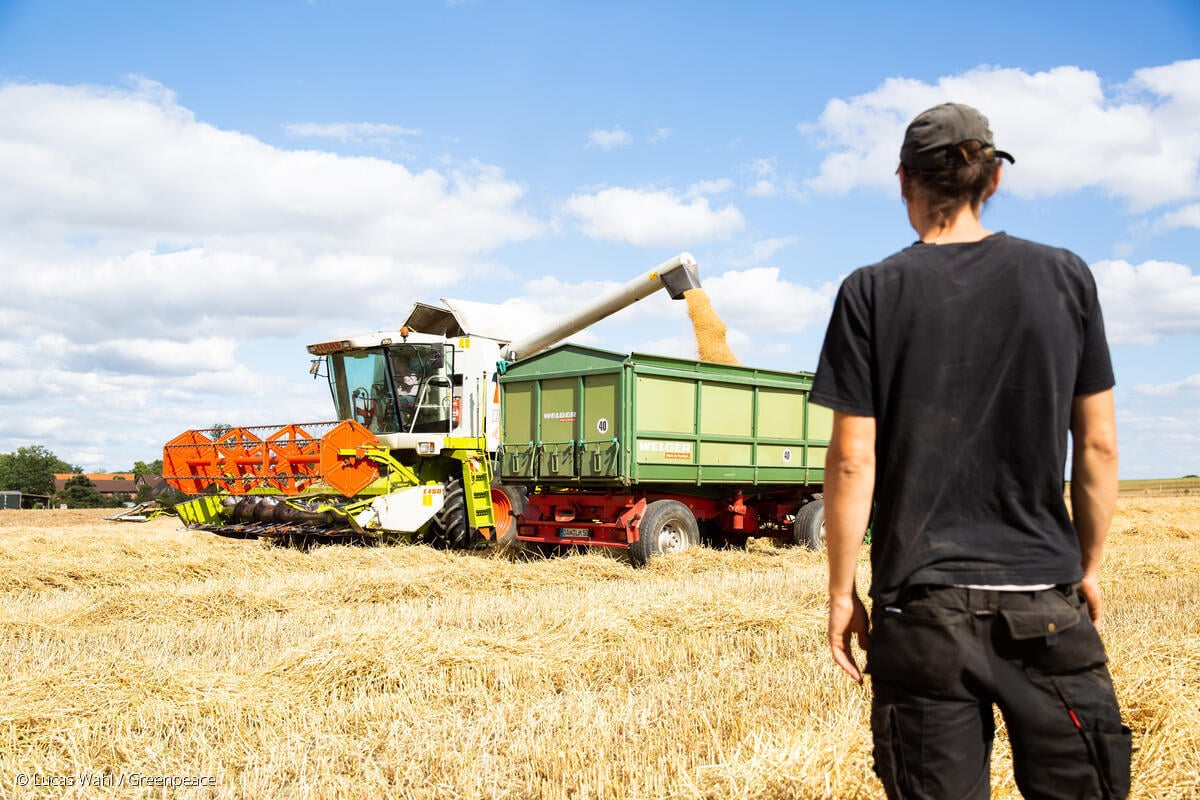The climate crisis is accelerating, and farms across Europe are vanishing. Industrial agriculture drives both – yet the EU keeps pouring public money into it through its main farming policy, the Common Agricultural Policy (CAP). Our campaign calls to #rebootCAP: stop funding climate destruction and start supporting farmers who protect climate, nature, communities, and food resilience.

The EU’s main farming policy, the Common Agricultural Policy (CAP), impacts what we eat and how much we pay for it, but also our health and our environment – in short, our lives and future in Europe. It’s time we got involved!
Right now, the CAP hands out subsidies – public money – based on the size of land rather than how food is produced. Pay-by-hectare rewards large landowners and industrial farmers, so taxpayers in the EU are effectively sponsoring the super-rich of the food system. Meanwhile, millions of smaller and ecological farms are being forced out of business. By favouring industrial agriculture, the CAP is also reshaping Europe’s landscapes. Polluted rivers, collapsing biodiversity, and dead soils undermine essential ecosystem services such as clean water, pollination, and flood protection. In the long run, citizens will pay with higher health costs, reduced food availability, and skyrocketing costs for environmental clean-up.
This means that we do not receive fair value for the taxes we pay. Our money should instead support clear public benefits. Farmers could play a crucial role in producing healthy food, protecting natural resources and habitats, caring for our rural heritage and landscapes, and addressing issues such as flooding and drought. Yet in just 15 years, more than five million farms have vanished in the EU – that’s about 970 farms closing every single day. The majority were small family farms, swallowed up by expanding industrial farms. Our analysis found that the EU lost 44% of its commercial farms between 2007 and 2022, most of them small-scale. At the same time, the number of mega-farms grew by more than half, and the very largest almost doubled.
Here are the main challenges smaller farmers face:
- Unfair subsidies: the bulk of CAP subsidies is paid out based on the size of the land, meaning large farmland owners and farmers receive the lion’s share of public funding.
- Small loans: Public and private investors favor large farms over small ones.
- No market power: Compared to industrial farms and the other players in the food supply chain, smaller farms have weak market power.
- Expensive land: Land-based subsidies drive up land prices, which prevents young and resource-poor farmers from entering the business.
- No eco incentives: Ecological farmers and those who want to transition to ecological farming receive little support.
- Lobby power: Large industrial farmers, backed by powerful lobby groups, shape policies to serve their own interests.
The CAP is currently under review and this is our chance to change it. We pressure the EU into supporting farmers in need and initiating a fair and just transition to ecological farming.
Find out more about the impact the current system has on us:
- Health Risks: The CAP encourages monocultures reliant on pesticides and fertilisers. Pesticides and residues in food and water pose long-term health risks, including cancer, hormonal disruption, and neurological damage. The CAP also indirectly supports the overuse of antibiotics in livestock, fuelling antimicrobial resistance.
- Declining food quality and nutrition: Subsidies prioritising industrial farms encourage the production of cheap calories (corn, wheat, sugar) over diverse, nutritious foods.
- Costs: Citizens pay twice: first through CAP subsidies, which overwhelmingly benefit industrial farming, and then again through the environmental and health costs associated with this type of farming, such as polluted water, degraded soils, and the significant impact on the climate crisis.
- Social inequality and rural decline: In Europe, 20% of CAP beneficiaries receive 80% of subsidies, while 80% of farmers share just 20%. Even more strikingly, the top 1% alone pocket an average of 30%. This inequality has driven the loss of millions of farms, fueling unemployment and depopulation. Between 2007 and 2022, 3.8 million jobs on small farms disappeared.
- Loss of food culture and culinary diversity: Industrial farming prioritises uniform, high-yield crops at the expense of traditional varieties, regional flavours, and local specialities – eroding Europe’s culinary heritage.
- Animal welfare: The CAP fuels factory farming, where animals live in cramped, stressful conditions. This not only raises ethical concerns but also increases the risk of disease outbreaks such as avian flu and swine fever.
Take action! Write to the Members of the European Parliament (MEPs) who are currently discussing changes to the CAP. Use our English template or translate the message to your native language if writing to an MEP from your home country.
Our Run for Reform game [link to game]: it’s more than just a game; it exposes the hard truth that millions of farmers in the EU face.
Play the game and change reality.
More information: https://www.greenpeace.org/eu-unit/issues/nature-food/47254/go-big-or-go-bust-report/



